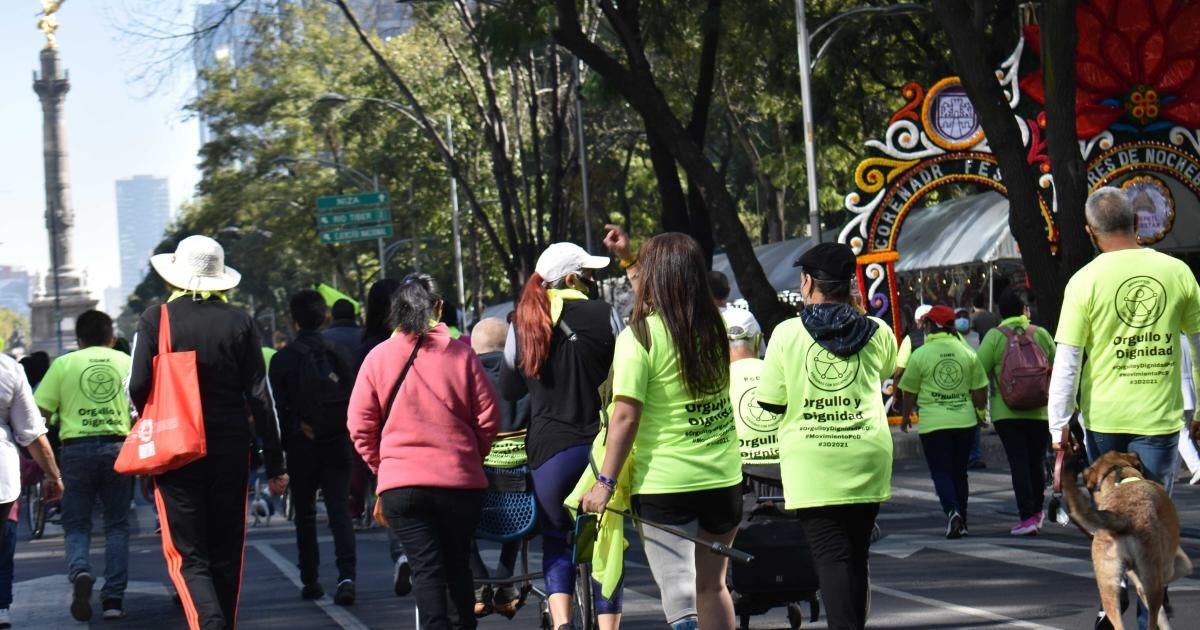(Mexico City) – Local legislatures in Mexico should promptly reform their civil codes and notary public legislation to provide an alternative to guardianship for people with disabilities and older people, more than 100 organizations including Human Rights Watch and experts said today in a letter to Congress.
In 2021, the First Chamber of the Supreme Court ruled that guardianship is unconstitutional and discriminates against people with disabilities. In April 2023, Congress abolished guardianship at the national level in a landmark reform to Mexico’s national civil procedure code, granting all adults full legal capacity and the right to supported decision making if they so choose. However, before these rights can be fully realized, states must reform their laws and regulations.
“Many people in Mexico are labeled ‘incapable’ and unable to enjoy their rights because their state government failed to create the legal framework enabling them to do so,” said Carlos Rios Espinosa, associate disability rights director at Human Rights Watch. “The adoption of a new national civil procedure code is a major step forward, but the lack of necessary state legislation endangers all adults, including people with disabilities and older people. States need to hurry up.”
All 32 state civil codes and notary public laws, including in Mexico City, still treat some people, including those with disabilities and older people, as incapable of making their own decisions and grant discretion to notaries to determine capacity. For example, if someone with Down Syndrome goes to a notary public in Mexico City to register their will, the notary can determine that the person is incapable and deny them service. Older people are disproportionately affected by the legislation because they constitute 40.9 percent of people with disabilities in Mexico, despite accounting for only 16 percent of the total population, according to the 2020 census.
On April 24, Congress unanimously passed the National Civil and Family Procedure Code, which discontinues guardianship and grants everyone 18 or older full legal capacity and the right to supported decision making in accordance with the regulations in state civil codes. The code aligns Mexico’s national civil and family procedure legislation with international human rights law and the Supreme Court’s binding ruling.
Although the code won’t enter into force fully for four years, the Supreme Court’s ruling has prohibited all guardianship systems since 2021. State legislatures’ continued failure to update laws to comply with the ruling puts people with disabilities and older people at risk, Human Rights Watch said.
The national legislation only deals with procedural aspects of legal capacity; state legislation addresses the substantive elements, such as how to enter into contracts, make a will, or assign the power of attorney. State legislatures should reform their civil codes and notary public legislation to create a human rights-based supported decision-making system. This model would ensure respect for the will and preferences of the people who require support, instead of treating them as if they had no rights, which was the case under the guardianship system.
In light of the gap in state legislation, on May 17, more than 100 national and international civil society organizations, organizations of people with disabilities, and independent experts jointly wrote to Congress to request the adoption of a resolution encouraging all state legislatures to align their civil legislation with the national code. Notably, Mexico City’s Congress already introduced a bill to reform its Civil Code and the Notary Public Act, the two main texts that need to be amended to align with the code.
Mexico ratified the Convention on the Rights of Persons with Disabilities in 2007 and the Inter-American Convention on the Protection of the Human Rights of Older Persons in 2023. Both instruments establish the right to full legal capacity for people with disabilities and older people. Legal capacity is also fundamental human right enshrined in other core United Nations human rights treaties that bind Mexico, including the International Covenant on Civil and Political Rights (ICCPR) and the Convention on the Elimination of All Forms of Discrimination against Women (CEDAW).
“Human Rights Watch and our allies hope Congress heeds our letter and urges state legislatures to follow suit in protecting the right of all adults, including people with disabilities and older people, to make their own decisions,” Rios Espinosa said. “Mexico City already has a proposal that could be used as a model by other state legislatures, which should promptly reform their local legislation so the right to full legal capacity is a reality for all adults.”



